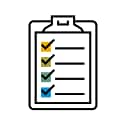Control Company Costs
Supplier Invoices 101: Your Invoice Questions Answered
Invoices are fundamental to any business. Whether you’re just starting out, looking to expand or revisiting old knowledge, it’s important you have the basics of supplier invoices under control so your processes run smoother and you pay your suppliers on time.
We’ve recently written about How Your Supplier Invoice Process Can Negatively (And Positively) Impact Your Cash Flow, but now we’re going back to basics. We’ve taken a few frequently asked questions when it comes to supplier invoices, invoice automation and why getting this process right is so important for your business.
What Is an Invoice?
To put it simply, an invoice is a request for payment. Supplier invoices are the sales invoices and bills that are issued by the supplying vendor and received by the customer. The invoice itemises a transaction between a seller and a buyer and will usually specify payment terms and provides options for payment methods.
Sometimes suppliers will send a month-end statement as an invoice for all outstanding payments, rather than sending an invoice for each transaction, particularly if you’re a regular customer to this supplier.
When Does an Invoice Get Paid?
Payment terms are usually specified by the supplier on the invoice when it is sent out. It should be paid by the due date and putting off payment can lead to fines or strained relationships between you and your supplier.
It’s usual for suppliers to give customers seven days to pay but this can be up to 30 or even 60 days, depending on the terms you’ve negotiated with the supplier. Your business may also have it’s own standard repayment terms.
What Is Invoice Management?
Invoice management is the function within a business that is responsible for managing and processing invoice documents from suppliers, this team is sometimes referred to as Accounts Payable (AP).
The function usually involves the following steps:
-
Receive invoice
-
Extract the information from the invoice
-
Validate and verify the invoice information
-
Reconcile invoice against the Purchase Order
-
Approve payments
-
Archive the invoice for future audits
In the past, this process has been largely manual and paper-based, which can lead to potential errors and duplication of invoices.
What Is Invoice Automation?
Invoice automation takes the mundane day-to-day tasks away from your AP team so they can focus on value-adding tasks that will help the business reach goals faster and enable them to create more ambitious growth and development plans.
In a nutshell, invoice automation will:
-
Capture and digitise paper invoices, as well as electronic ones
-
Optimise purchase orders and requests
-
Identify any duplicate invoices and highlight inaccuracies
-
Automatically forward invoices to approvers
-
Gain access to reporting for a full view of spend
What Is the Average Cost of Processing an Invoice?
It’s no secret that managing supplier invoices is time consuming, and time is money. Businesses that rely on either legacy technology or paper-based processes spend more time on manual data entry, which can see costs soar, especially with the extra time spent correcting errors.
Finance automation, such as Concur Invoice, reduces the cost of processing an invoice because it speeds up the time it takes. For instance, businesses using SAP Concur solutions see an annual average saving of £526,400 (£2,588 per 1,000 invoices) in business productivity, audit visibility and report processing productivity.
How Long Do Invoices Take to Process?
The time it takes to process an invoice varies depending on the size of your team and the number of invoices you receive. This process takes longer when AP teams have to manually input data into spreadsheets or check for duplicates.
With finance automation, lost invoices are cut by 22% and each AP employee can save roughly 12 hours a week!
Why Is Invoice Management Important?
Effective invoice management is essential when you need to control spend and improve financial visibility. If your business isn’t managing your invoices efficiently, you could face delays and errors in receiving or paying for goods and services. As your business grows, keeping on top of invoice management can become a challenge.
By using a spend management solution to automate these processes, you can be confident that your AP teams won’t get overwhelmed as you hit targets and expand the business. Not only will you increase productivity and save time with finance automation, but you’ll also improve compliance with up-to-date policies and prevent any potential fraud that could drag down your bottom line.
Supplier invoices are inevitable for any business and having a firm grip on the process will ensure your business runs smoothly. Not sure if Concur Invoice is for you? Take a look at your self-guided demo to see how it can help your organisation.

